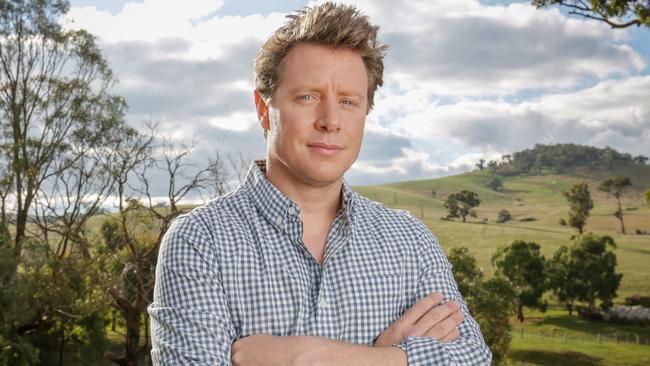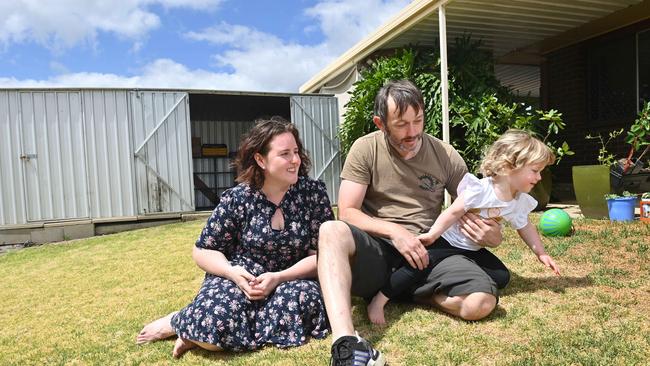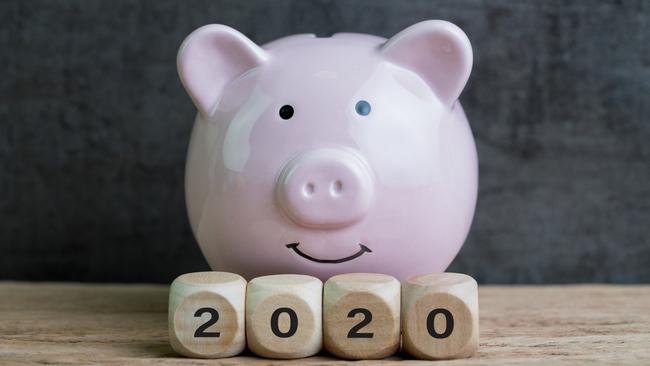Barefoot Investor: How to bounce back after Australia’s pandemic-induced recession
With Australia still reeling from the comedown of its longest economic boom in history, here’s how to get on top of your finances in 2021.

Business
Don't miss out on the headlines from Business. Followed categories will be added to My News.
After having a major life change 12 months ago I decided to become a not-for-profit financial counsellor.
That means I now volunteer my time helping vulnerable Aussies in financial hardship.
My first role was helping bushfire victims … and then came COVID-19.
I’ve updated The Barefoot Investor to take into account what I’ve learned in the financial trenches helping people who’ve lost their homes, jobs or small businesses get back on their feet.
Australia has just come off the longest economic boom in history — lasting almost 30 years. As a result, most people are not prepared for what comes next.
Australians are drowning in debt … we are some of the most heavily indebted households on the planet.
And yet there’s one group of people who are financially confident despite the deepest economic downturn in living memory: My Barefoot community (which has been described as ‘the biggest financial cult’ in Australia by the media).
What’s their secret?
It’s not that they’re earning more money than you.
It’s not that they’re in safe jobs … many have had their hours cut, or lost their jobs in this crisis.
Yet, almost without fail, they’re staring down this crisis and saying: ‘I’ve got this.’
What gives?
You’re about to find out.
This week, we’ll look at what to do about your debts.
I’m sharing some updated info from The Barefoot Investor: Step 3: Domino Your Debts.
Next week, we’ll look at how to make a fresh start in 2020.
Everything you wanted to know about paying off your debts
Should I pay off my HECS-HELP debt?
No, it’ll look after itself
Your HECS-HELP debt is not charged an interest rate.
Instead, each year on 1 June it’s indexed to the cost of living.
In 2020 that index rate was a measly 1.8 per cent.
And remember, you don’t start making repayments until you earn more than $46,620.
Finally, if you croak, the debt dies with you.
All up that’s a very sweet deal.
Bottom line: there are better things to do with your money … like the Barefoot Steps.
What should I do about my car loan?
Get rid of it.
I’m deadly serious. Don’t pay interest on something that’s rapidly falling in value.
That doesn’t mean you have to drive your kids around in a Datsun 180B.
My rule of thumb is you shouldn’t drive a car that’s worth more than half your annual income.
Buy something you can afford … with cash you’ve saved up.

Which credit card should I pay first?
The one with the smallest balance.
Should I consolidate my debts?
Maybe, but if you do, just make sure you only do it through a bank or a credit union (steer clear of infomercial-style spray-on-hair-in-a-can ‘debt solutions’ companies).
And understand it’s not a magic wand.
What’s keeping you from paying off your debts once and for all is your pattern of spending
money.
The people who ditch their debts for good have one thing in common: they change their attitude.
Should I worry about what’s on my credit file?
Yes. But don’t get all freaked out about it.
Treat it like an annual sexual health check.
Each year when you do your tax, you should call credit reporting agency Equifax on 13 83 32 and request a free copy of your credit report.
If there’s anything incorrect on your file, they have the legal obligation to correct it.
Dude, Visa has a hit man looking for me — should I go bankrupt?
I only recommend bankruptcy in the most extreme circumstances.
The only people I trust when it comes to advising on bankruptcy are the independent, not-for-profit financial counsellors at Financial Counselling Australia.
Call them on 1800 007 007 and arrange a catch-up.

Help, I can’t make my repayments!
You’re probably beating yourself up about it, right?
Well, stop it.
There’s no shame in hitting tough times … the only shame is not doing something about it.
As a financial counsellor there are two things I know: first, it won’t go away.
Just like being in a relationship, the trouble starts when the communication stops.
Second, you have more options than you think.
Now, let me show you what to do right now — and I mean in the next 60 seconds — to get back in control.
It doesn’t matter if you’re having trouble paying a credit card, a mortgage repayment, a car
loan, or your phone bill (or all of them!), these three steps work. Let’s get into it.
Step 1. Whip out your phone
As in right now. Google: ‘Hardship Department company you owe money to> + email address’
Step 2: No chitty chat
Using the hardship department’s email which you just googled, tap out the following email:
Insert date
Insert your address
Insert your name
Insert your customer number (find it on an old bill, otherwise keep going)
Dear Hardship Department
My name is XXXX, and I am writing to you today to let you know that I am in financial hardship as a result of … (loss of hours/job, relationship breakdown, mental/physical illness, other life event).
At the moment, I have no/limited capacity to make repayments.
However, I am in the process of being referred to a financial counsellor who will assist me with my situation.
In the interim, I request that you direct all correspondence via email, rather than phone.
Thank you for assisting with this matter.
Your name
Why are you sending this?
Simple.
By telling your story, you instantly become more than just a number — you’re a real person.
And by putting it in writing, you’ll have an official record, which will come in handy when you get help in
the next step …
Step 3: Call for backup
Call 1800 007 007 right now and book an appointment with a not-for-profit financial counsellor.
A financial counsellor will work with you to help put you back in control.
We don’t have magic wands, but we can get you back on your feet.
Help! I don’t know what to do about my mortgage!
First, read the advice above.
Second, don’t hesitate to seek help.
The National Debt Helpline is a not-for-profit service where experienced financial counsellors offer free information and advice.
It’s all confidential and they won’t try to sell you anything.
These guys are the unsung heroes of the financial services industry.
In your darkest hour, they’ll stand shoulder to shoulder with you and fight for you when no one else will.
Visit ndh.org.au.
Call 1800 007 007.
This is an edited extract from The Barefoot Investor, Step 3: Domino Your Debts, pages 90-94.




